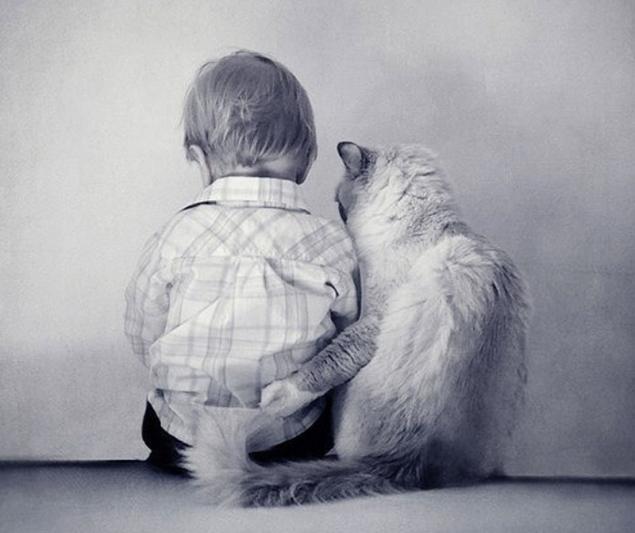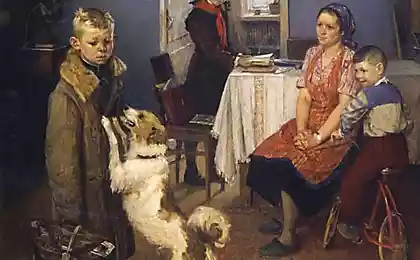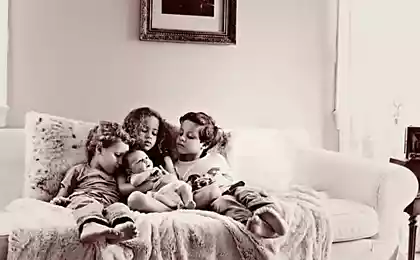430
7 mistakes of parents in conflict with children
No. 1. To speak about the person, not the act.“What a terrible child!”, “So do bad girls” or direct “You're wrong. I don't need it”. It seems already clear to everyone, but somehow still universally used. Don't forget about it!

No. 2. To shift the blame to the child.
For example, I guessed that the child who is now running playing, can touch the Cup on the edge of the table that you have not removed. Who is to blame, the Cup broke and that scolded child? Or allowed the child to Pat a street dog, and she bit. And now child – don't you know that the dog might bite? Exaggerated examples, but I think everyone can think of a situation where it is necessary to scold yourself, and we criticize the child.
No. 3. Use your “adult” benefits.
For example, take the toy and put it high on a cupboard where the child can not reach it himself. It makes him feel his inferiority (physical now) and is deep resentment and anger. Who already did so, he noticed that at the moment when the toy goes in the closet, the child begins to scream horribly and can throw a tantrum. And we don't help him to come out of the conflict, but leave the one and proposed to reflect on their behavior.
No. 4. The pressure on the material side of the question.
It is, in General, refers to the use of adult benefits, but I want to highlight this in a separate paragraph. For example, was going to go after a toy, but was an altercation in which the child hurt one of the parents. And this parent said that will not buy a toy if he behaves. Yes, this is a quick way to get the child to obey, but he does not think about how to respect the feelings of the father or mother, and about how to obtain their benefits. When the child slightly grows up, he will in certain situations try to remain silent, “to buy the toy,” and anger and resentment to accumulate inside. Do I need to explain what happens and how, having become independent, the son or daughter will treat parents.
The conclusion from this paragraph is this: in a conflict situation talk about feelings and teach your child to respect them, to behave in a given situation. Try not to punish by deprivation of material things because of bad behavior.
No. 5. Aggressive behavior, loss of control, use of harsh words, the belt.
This child remembers, that in the event of loss of control over the situation, it is possible to lose control of themselves, that the rights of those who behave more aggressively, says rougher, etc not to mention the fact that children often get scared of such a reaction of parents and then “begin to behave normally carry”. Indeed, in such circumstances, to be an equal participant in a situation is not obtained. The child can't spank mom or dad, or thow to yell at them.

No. 6. To force the child to apologize often and for any little thing, while you do not.
To teach the child to admit his guilt and beg forgiveness only by personal example. To be honest, I sometimes break down and say to my daughter the hurtful words that you later regret. But I always try to apologize for them. Say to my daughter: “Forgive me, please. I flared up and said you is not what we really think” Daughter usually apologizes in this moment, too: “Mommy, I'm sorry. I was so naughty and very naughty. You to feel bad. Will you excuse me?” And we usually hug.
In situations where we were both good, I usually apologize first. And don't blame the daughter, not saying she was wrong, too. The daughter already and itself recognizes its share of the blame in these situations and asks for forgiveness.
No. 7.“Do bad” child as a punishment and punished humiliating.
If it came to punishment, remember that it is better to deprive the child of the good, than hurt him. Ie better not to read at night, not to play, etc., than to yell and spank. To punish a child, but punishment in any case must not be degrading and must not occur in front of other people. When the conflict erupted in a crowded place, I try to apply the approach, called “education of the ear”. Try it, maybe will help you.

And the last thing I want to say. Don't forget the Golden rule: “Before you say it baby, say it to yourself”. Then conflicts will be much less, they will take place more constructively, and respect for parents will be more the child's self-esteem will be okay and he too will learn to control their words. I say this from my own experience. published
Author: Tatyana Ivanko
Source: woman-rules.ru/family/7-grubykh-oshibok-roditeley-vo-vremya-ssor-s-detmi/

No. 2. To shift the blame to the child.
For example, I guessed that the child who is now running playing, can touch the Cup on the edge of the table that you have not removed. Who is to blame, the Cup broke and that scolded child? Or allowed the child to Pat a street dog, and she bit. And now child – don't you know that the dog might bite? Exaggerated examples, but I think everyone can think of a situation where it is necessary to scold yourself, and we criticize the child.
No. 3. Use your “adult” benefits.
For example, take the toy and put it high on a cupboard where the child can not reach it himself. It makes him feel his inferiority (physical now) and is deep resentment and anger. Who already did so, he noticed that at the moment when the toy goes in the closet, the child begins to scream horribly and can throw a tantrum. And we don't help him to come out of the conflict, but leave the one and proposed to reflect on their behavior.
No. 4. The pressure on the material side of the question.
It is, in General, refers to the use of adult benefits, but I want to highlight this in a separate paragraph. For example, was going to go after a toy, but was an altercation in which the child hurt one of the parents. And this parent said that will not buy a toy if he behaves. Yes, this is a quick way to get the child to obey, but he does not think about how to respect the feelings of the father or mother, and about how to obtain their benefits. When the child slightly grows up, he will in certain situations try to remain silent, “to buy the toy,” and anger and resentment to accumulate inside. Do I need to explain what happens and how, having become independent, the son or daughter will treat parents.
The conclusion from this paragraph is this: in a conflict situation talk about feelings and teach your child to respect them, to behave in a given situation. Try not to punish by deprivation of material things because of bad behavior.
No. 5. Aggressive behavior, loss of control, use of harsh words, the belt.
This child remembers, that in the event of loss of control over the situation, it is possible to lose control of themselves, that the rights of those who behave more aggressively, says rougher, etc not to mention the fact that children often get scared of such a reaction of parents and then “begin to behave normally carry”. Indeed, in such circumstances, to be an equal participant in a situation is not obtained. The child can't spank mom or dad, or thow to yell at them.

No. 6. To force the child to apologize often and for any little thing, while you do not.
To teach the child to admit his guilt and beg forgiveness only by personal example. To be honest, I sometimes break down and say to my daughter the hurtful words that you later regret. But I always try to apologize for them. Say to my daughter: “Forgive me, please. I flared up and said you is not what we really think” Daughter usually apologizes in this moment, too: “Mommy, I'm sorry. I was so naughty and very naughty. You to feel bad. Will you excuse me?” And we usually hug.
In situations where we were both good, I usually apologize first. And don't blame the daughter, not saying she was wrong, too. The daughter already and itself recognizes its share of the blame in these situations and asks for forgiveness.
No. 7.“Do bad” child as a punishment and punished humiliating.
If it came to punishment, remember that it is better to deprive the child of the good, than hurt him. Ie better not to read at night, not to play, etc., than to yell and spank. To punish a child, but punishment in any case must not be degrading and must not occur in front of other people. When the conflict erupted in a crowded place, I try to apply the approach, called “education of the ear”. Try it, maybe will help you.

And the last thing I want to say. Don't forget the Golden rule: “Before you say it baby, say it to yourself”. Then conflicts will be much less, they will take place more constructively, and respect for parents will be more the child's self-esteem will be okay and he too will learn to control their words. I say this from my own experience. published
Author: Tatyana Ivanko
Source: woman-rules.ru/family/7-grubykh-oshibok-roditeley-vo-vremya-ssor-s-detmi/
























